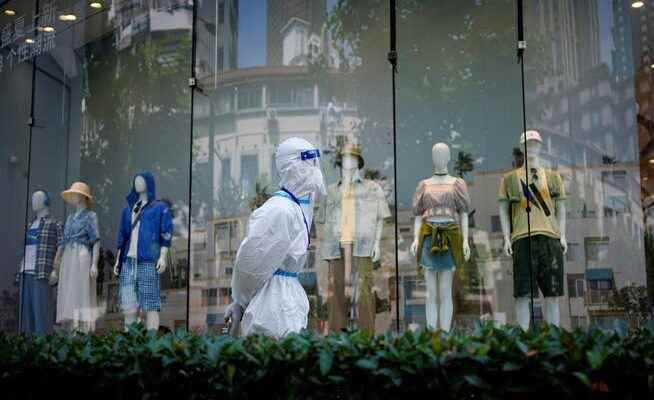Constant lockdowns, geopolitical tensions, economic crisis: numerous companies from Switzerland are reconsidering their involvement in the Middle Kingdom.
The two-month lockdown in Shanghai has left its mark on many companies.
For sixteen years, the interest groups of Swiss companies in China have been collecting data on companies’ confidence in the Chinese market and on investment plans. But as sobering as the youngest, im survey conducted in June the results have never been forthcoming.
22 percent of the companies surveyed expect significantly lower sales in China business for the current year than in the previous year. In the previous survey conducted at the beginning of the year, it was only 2 percent. In return, only 38 percent of the companies expect increasing or significantly increasing sales in 2022. At the beginning of the year, the corresponding share was still 71 percent.
“This year’s survey is unprecedented since we started such studies in 2006,” says Nicolas Musy, Delegate of the Board of Directors of Swiss Centers Group, a platform that helps Swiss companies enter the Asian market. The previous survey at the beginning of the year recorded the highest level of business confidence to date. “Mid-year, the follow-up survey showed a dramatic slump in confidence to the lowest level since records began,” Musy said. The survey presented on Friday was created by the Swiss Centers Group, the University of St. Gallen and Swisscham China, among others.
Zero Covid spoils business
The main reason for the rapidly dwindling confidence of Swiss companies in the former future market is the zero-Covid policy of state and party leader Xi Jinping. The recurring lockdowns with interruptions in supply chains and mass tests are making life difficult for more and more companies. The two-month lockdown in Shanghai in April and May was undoubtedly a turning point. Added to this are geopolitical tensions and the economic weakness in China. The real estate crisis spoiled the business of the elevator manufacturer Schindler, for example. A total of around a thousand companies from Switzerland are active in China.
Almost 80 percent of the companies surveyed expect negative effects on their business from the zero-Covid strategy, which is also controversial among Chinese experts. For the first time, a substantial proportion of companies are also considering reducing activities in China. 15 percent of the companies surveyed plan to reduce their investments or to completely close their China business.
At 5.9 on a scale of 1 to 10, confidence in the success of business in China is also at an all-time low. In the previous survey at the beginning of the year, confidence was still at 7.4.
Companies in other countries are also pessimistic
The pessimistic expectations of Swiss companies regarding business in China coincide with the results of the latest surveys by the German Chamber of Commerce Abroad, the American Chamber of Commerce and the European Chamber of Commerce in China. It is primarily the Zero Covid policy that is causing more and more companies to put their commitment in the Middle Kingdom to the test. The authorities have just released the 21 million inhabitants of the central Chinese city of Chengdu from a lockdown that lasted several weeks.
Experts agree that the economic damage of the Zero Covid policy now far outweighs the benefit. The Covid tests among the population of Shanghai alone are estimated to have swallowed up the equivalent of 40 million dollars per day during the two-month lockdown. The economic damage to the city is said to have been the equivalent of $46 billion per month.
Mainly because of the Covid policy, analysts only expect economic growth of less than 3 percent for the current year. The former locomotive of the global economy is in danger of becoming the sick man of the world, and there is no immediate improvement in sight. At best, a cautious easing of the zero-Covid policy is not to be expected until the middle of next year at the earliest.
